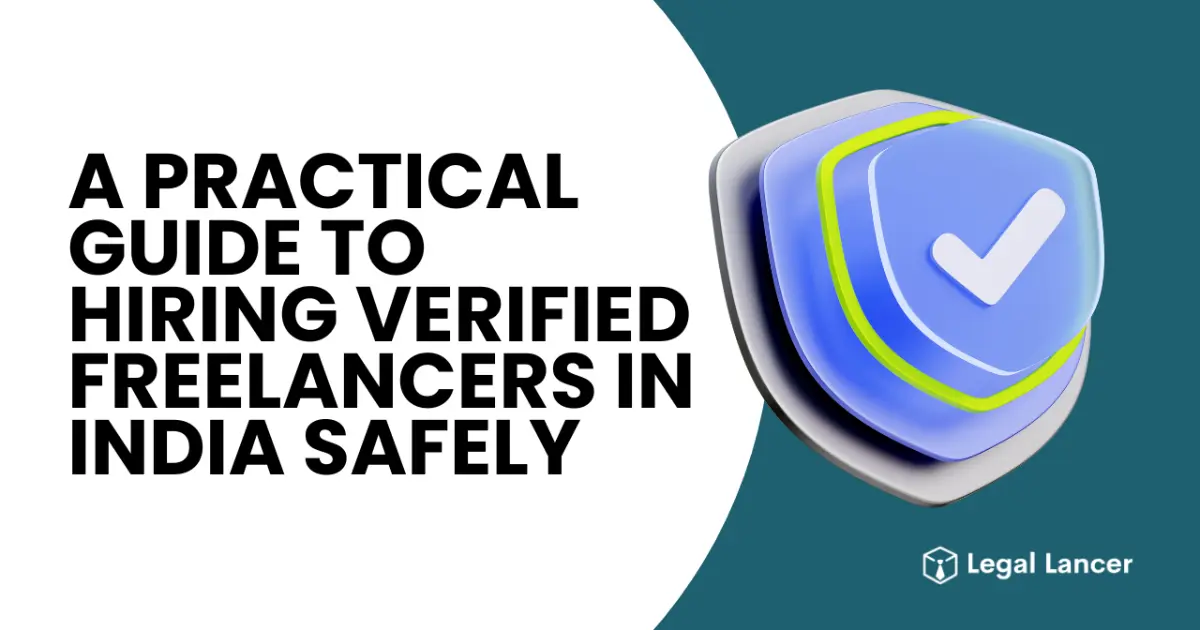Freelance Writing Tips for Beginners: A Comprehensive Guide
Kickstart your freelance writing journey! Learn how to choose your niche, build a standout portfolio, set competitive rates, and find clients. From blogging & copywriting to SEO & technical writing—unlock skills to grow and succeed as a freelancer.
Lohit Poddar
Updated 5 months ago8 min read

Freelance writing is an exciting and lucrative career that offers freedom, flexibility, and the opportunity to work on a variety of projects. With the rise of digital content, businesses, bloggers, marketers, and entrepreneurs are constantly seeking skilled writers to help create engaging content. Whether you're passionate about writing, looking to work from home, or exploring a new career path, freelance writing offers endless opportunities.
If you’re wondering how to get started as a freelance writer, you’ve come to the right place. In this article, we’ll guide you through the steps to become a freelance writer, provide actionable writing tips for different types of writing, and share insights on how to grow your career as a freelance writer.
How to Get Started as a Freelance Writer
Getting started in freelance writing can seem overwhelming, especially if you're new to the industry. But with a clear strategy, you can break into the field and begin building a solid portfolio. Here’s how to get started:
1. Choose Your Niche
One of the first steps in becoming a successful freelance writer is choosing a niche. The writing world is vast, and focusing on a specific area will allow you to stand out and attract the right clients. Some popular writing niches include:
- Blogging: Writing articles and blog posts for businesses, websites, and individual bloggers.
- Copywriting: Crafting persuasive and compelling copy for marketing materials, websites, ads, and more.
- Technical Writing: Writing user manuals, product documentation, and software guides.
- SEO Writing: Writing content optimized for search engines to rank higher in Google search results.
Tip: Start by exploring different niches and see where your strengths and interests lie. You can always expand later, but starting with one or two niches will help you build expertise.
2. Build Your Portfolio
Your portfolio is your digital resume, showcasing your writing style and expertise. Even if you're just starting, you can create a portfolio by writing sample articles, blog posts, or stories in your chosen niche. You can also offer your writing services for free or at a discounted rate to get some initial work under your belt.
Tips:
- Create a website or a blog to showcase your work.
- Use platforms like Medium, LinkedIn, or WordPress to publish your samples.
- Include a variety of writing styles in your portfolio to demonstrate versatility.
3. Set Your Rates
One of the trickiest parts of starting as a freelancer is determining how much to charge. Freelance writing rates can vary depending on experience, niche, and project complexity. As a beginner, you may start with lower rates and gradually increase them as you gain more experience and clients.
Tips:
- Research the market: Check the average rates for freelance writers in your niche.
- Start with competitive rates: Offer affordable rates to attract your first clients, but don’t undervalue your work.
- Set clear pricing: Be transparent with clients about your rates and any additional costs (e.g., revisions).
4. Find Clients
Finding your first freelance writing clients is one of the most important steps in launching your career. There are several ways to find clients:
- Freelance platforms: Websites like Upwork, Fiverr, Freelancer, and LegalLancer offer a great place to start.
- Job boards: Check out specialized job boards for freelance writing, such as ProBlogger and We Work Remotely.
- Networking: Join writer communities on LinkedIn, Twitter, and other social media platforms to connect with potential clients and fellow writers.
- Cold pitching: Research businesses or blogs that need writers and pitch your services directly to them.
Tip: Start small by offering your services to friends, family, or local businesses as you build your portfolio and gain experience.

Freelance Writing Tips for Beginners
Once you’ve established the basics, it’s time to hone your writing skills and improve your craft. Here are writing tips to help you excel in different types of freelance writing:
1. Blogging
Blogging is one of the most popular types of freelance writing. It allows you to write articles, how-to guides, product reviews, and more for various niches.
Tips:
- Focus on SEO: Learn how to optimize your blog posts for search engines by including keywords, using headings, and structuring your content well.
- Write engaging introductions: Grab your reader’s attention in the first few lines to keep them reading.
- Include a call to action (CTA): Encourage readers to comment, share, or take action after reading your blog post.
2. Copywriting
Copywriting is all about crafting persuasive content that drives action. Whether you’re writing for ads, websites, or landing pages, your copy should compel the reader to act.
Tips:
- Know your audience: Understand the needs, desires, and pain points of the audience you’re writing for.
- Focus on benefits: Highlight the benefits of the product or service you're promoting rather than just listing features.
- Use compelling headlines: The headline is the first thing readers see, so make it attention-grabbing and benefit-driven.
3. Technical Writing
Technical writing involves creating user manuals, product guides, software documentation, and other materials that explain complex information in a simple way.
Tips:
- Break down complex concepts: Use simple language and clear structure to explain technical topics.
- Use visuals: Incorporate charts, diagrams, or screenshots to make the content easier to understand.
- Stay updated: Keep up with industry changes and technological advancements to ensure your writing is relevant.
Conclusion: Keep Improving and Growing as a Freelance Writer
Freelance writing offers tremendous opportunities for those willing to put in the work. As a beginner, it’s important to remain patient and consistent. Your portfolio and writing skills will improve over time as you take on more projects and refine your craft.
To continually grow as a freelance writer:
- Learn from feedback: Always be open to feedback from clients and use it to improve your writing.
- Expand your skill set: Stay up to date with writing trends, SEO techniques, and digital marketing strategies.
- Network with other writers: Join writing communities and attend industry events to expand your connections and get new opportunities.
Starting as a freelance writer can be daunting, but with persistence, hard work, and the right strategies, you can build a successful freelance writing career.
Newest Articles
Explore articles that might interest you.
© 2024 All rights reserved



